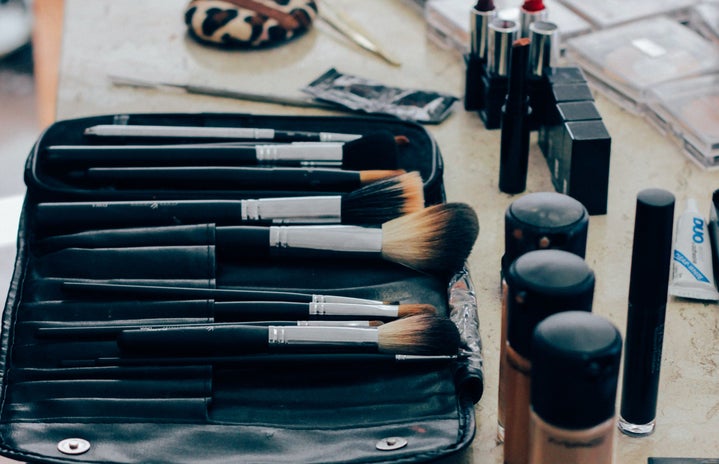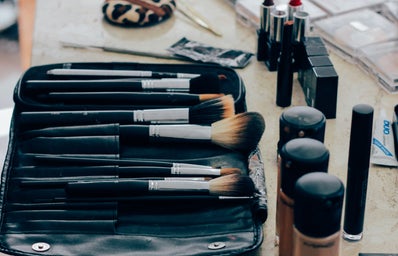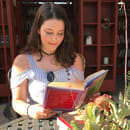As I’m sure most of us are familiar with, having bad skin as a teenager is a huge struggle. Not only does it affect your confidence, but depending on how bad your acne is, it can actually be physically painful. I never really paid that much attention to my skin for the first few years of high school. My skin was decent, and since all of my friends were breaking out as well, I thought that having acne was something normal I had to deal with as a teen. A few breakouts here and there didn’t seem like something to stress about…until I got to my last year of high school.
When I was a senior, I used a moisturizer that was incompatible with my skin, and it seemed to trigger a chain event of terrible, painful breakouts that didn’t stop even when I discontinued using the product. I had large, painful cystic acne on my chin and forehead, which left behind heavy discoloration and scarring. I had no idea what to do; my friends weren’t well-versed in skincare and could only offer me home remedies that, even when I knew next to nothing about skincare, sounded dangerous (for example, washing my face with apple cider vinegar or lemon and sugar scrubs). My mom suggested that I go to the doctor to see if they could help. From there, I was prescribed a myriad of different oral and topical medications, which all seemed to do very little other than suck every drop of moisture out of my face and cause my skin to peel like crazy.
This caused my confidence at the time to plummet. I felt like I couldn’t go anywhere without putting makeup on first, even to go to the gym or run errands. Even with makeup on, I felt like my skin was all anyone could see, and I was positive that everyone was judging me or thinking that I was ugly or gross. I would cover my mouth with my hand when I talked to people (so they couldn’t notice the breakouts on my chin) and I had a hard time looking people in the eyes when I spoke to them.
Fed up after a while with using medications with no luck, I decided to try different, non-prescription products instead. Not knowing where to start, I asked my doctor for a referral to a dermatologist which she- much to my frustration- declined, saying all they would do is try to put me on Accutane. Discouraged, I took matters into my own hands. I had heard a bit about Korean skincare and decided to do some research on it. The emphasis on using gentle products and preventing skin issues from occurring (rather than trying to fix them), was appealing, so I ordered a product that was recommended on a blog I was reading. I don’t remember the brand, but it was a rose petal-based gel moisturizer. While it didn’t magically fix all of my skin issues, it helped counteract the dryness from my prescription products and felt like heaven on my dry, sad skin.
From there, I gradually added another product or two into my routine every couple of months, learning about the world of serums, essences, toners and cleansing oil, and gradually stopped using medicated products. Since then, I’ve used primarily Korean and Japanese skincare products. I’ve seen a gradual improvement in my skin thanks to my dedication to picking good products, consistency with my routine, and patience. Not only did these products improve my skin, but I also now have a deep interest in and love for skincare.
My skin has dramatically improved, and I actually get compliments on my skin now, even though I still struggle with insecurity about it. I’m still working on being comfortable in public without any makeup on, as it’s hard to overcome an insecurity that I’ve had for so long. In fact, a Target run last week was one of the first times that I’ve been able to go out makeup-less without worrying about my appearance the whole time. No one commented on how I looked or treated me any differently just because they could see my bare skin. This was a reminder for me that although I may feel like a physical “flaw” of mine is glaringly obvious, most people probably don’t notice it or care even if they do.
I still occasionally find myself getting upset if I have a few minor breakouts, but I try to put it into perspective by reminding myself that my skin is nowhere near as bad as it used to be. Instead of feeling bad about it now, I try to look to my skin for clues about my overall health; for example, I know that it’s usually no coincidence that the times I break out the most are periods when I’m stressed, eating poorly, or not getting enough sleep. I have begun to accept that my skin probably will never be perfect, and maybe I will have to work harder than other people for it to look its best. But I am okay with that, and I’ve learned to love my skin and all of its “flaws.”



